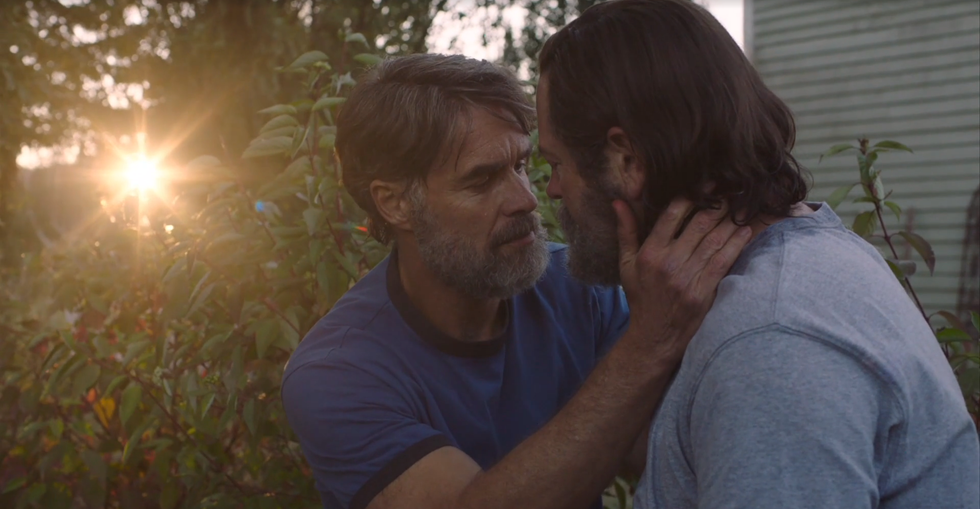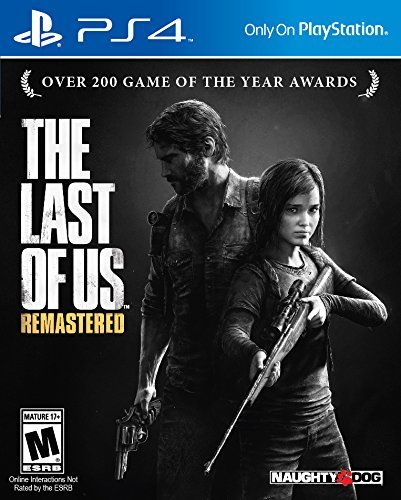The challenge with adaptation is deviation. For fans of a story’s source material, the first sign of it is always closer to sin than progress; they want their adaptations exact. With HBO’s The Last of Us, co-written by the video game’s writer, Neil Druckmann, fans expected fidelity. If the original is so good, why change it?
But the team behind the series—including Druckmann and co-writer Craig Mazin—wanted to go beyond its source. Going into the project, they fully anticipated deviation. In Episode 3, the writers embark on maybe the biggest deviation from the original: a full storyline devoted to two peripheral characters in the game, Bill and Frank. “As awesome as that episode is, there are going to be fans who are upset by it,” Druckmann said in an interview with The New Yorker. “To me, the story we tell is authentic to the world. It’s authentic to the themes that we’re talking about.” In other words: there’s fidelity even in deviation.
Mazin also noted in the same interview Bill and Frank’s importance to fleshing out the show’s greater themes: “outward love and inward love—the people who want to make everybody better, and the people who want to protect particular people at any cost.”
Making these themes clearer required a much more intimate engagement with both characters, regardless of how fans might react.
But Druckmann and Mazin’s storyline for Bill and Frank is not dissimilar to the relationship hinted at during gameplay. While Bill and Frank meet different fates in the game, those themes of protection and sacrifice are obvious to players.
Here’s how Bill and Frank’s storyline unfolds in the game.
What happens to Bill and Frank in The Last of Us video game?
In the game, players first meet Bill in a junkyard. The yard—and the ensuing maze of alleys and barricades—represents Bill’s contested territory, the land outside of his own fortifications. There are traps here, one of which snags Joel, requiring Bill to cut Joel lose and escort him and Ellie to safety.
As in the series, this storyline occurs following Tess’s death.
In the game, Bill owes Joel a favor. That favor, Joel proposes, is to give him and Ellie a car. As in the series, they will collect supplies from Bill and then drive west in his truck. Unlike the series, gameplay is spent acquiring this car, which first entails foraging for a battery. (The mission leads Joel and Ellie into an abandoned school and a roadway full of clickers.) The game requires that Bill’s hideout is overrun by infected—giving the player obstacles. Of course, in the series, Bill’s hideout is a fortress.
Frank is noticeably absent from gameplay. In one cutscene, Bill, trying to convince Joel to bring Ellie back to the QZ instead of transporting her, begins telling the story:
“Once upon a time, I had somebody that I cared about. It was a partner. Somebody I had to look after. And in this world, that sort of shit is good for one thing. Gettin’ ya killed. So you know what I did? I wisened the fuck up. And I realized it’s gotta be just me.”
Ultimately, Joel doesn’t buy Bill’s argument for pure self-preservation—which is Bill’s initial position in the series as well, before he meets Frank.
In the game, players also meet Frank. After failing to secure a car battery, Joel, Ellie, and Bill take shelter in a home. There, having hanged himself from the ceiling: Frank, in a Hawaiian shirt.
“He’s my partner,” says Bill, before cutting him down. “He’s the only idiot who would wear a shirt like that.” Bill is crying.
Their relationship, hinted elsewhere, as in letters around the house, was complicated. In Frank’s suicide note, the player learns that Frank “hated [Bill’s] guts” and “wanted a better life.”
Turns out Frank was the one who took Bill’s car battery, having tried to escape.
Joel and Ellie use the car battery to then leave the town. Bill says goodbye. We never see or hear about him again.
What unfolds as an encounter during gameplay is transposed into a full narrative in the series. Joel and Ellie, however, don’t participate in this story. They simply find Bill and Frank’s bodies at the end of the episode.
But the themes are the same—self-preservation vs care. And the same narrative beat is accomplished. Joel and Ellie now have a car. They can now journey west.
Assistant Editor
Joshua St Clair is an Assistant Editor at Men’s Health Magazine.




Comments are closed.